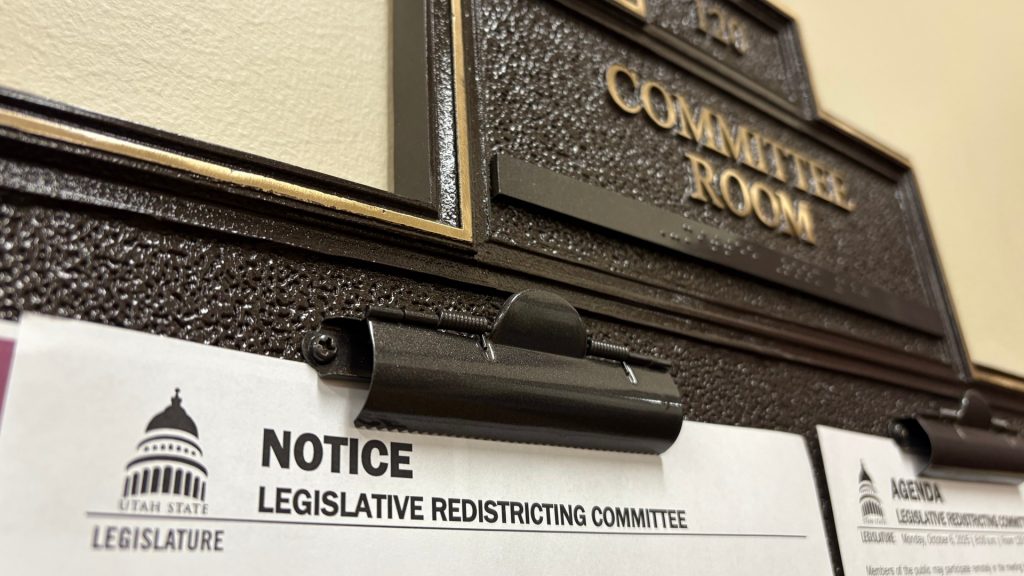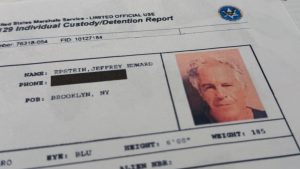Utah judge rejects GOP’s redistricting effort, adopts map favored by Democrats

Utah will use congressional maps that give Democrats a chance to win elections in two districts after a state judge struck down state Republicans’ redistricting attempt, according to court records. The new map now keeps most of Salt Lake City together, forging a path for more competitive elections for next year’s midterm elections.
A state judge issued an order just before midnight Tuesday, tossing out maps Republicans adopted in 2021 that broke up Democratic districts in the Salt Lake City area. Those maps would give Republican candidates a higher chance of winning a House of Representatives seat. Judge Dianna Gibson said in her ruling that the GOP’s map runs afoul of a 2018 referendum Utahns passed that required the state’s maps to be devoid of party favoritism and pass a partisan bias test.
“In short, Map C does not comply with Utah law,” Gibson wrote in her ruling and order. “Because the Lieutenant Governor’s Nov. 10, 2025, deadline for a map to be finalized is upon us, the Court bears the unwelcome obligation to ensure that a lawful map is in place, which the Court discharges by adopting Plaintiffs’ Map 1 for Utah’s congressional elections.”
Utah has four congressional representatives. Reps. Mike Kennedy, Blake Moore, Celeste Maloy and Burgess Owens, all Republicans. The last Democrat was Rep. Ben McAdams, who left office in 2021 after redistricting and is expected to run again in 2026, according to POLITICO.
The Utah chapter of the League of Women Voters, Mormon Women for Ethical Government (MWEG) and others filed the lawsuit in 2022, arguing that the Republican-drawn map isn’t fair. The groups and the state’s Democratic party supported the ruling in favor of “un-gerrymandered” maps. The Mormon group said the ruling isn’t a partisan win or loss, but for Utahns.
“Let us be clear about what this case has always been about for MWEG: MWEG stands firmly opposed to gerrymandering, no matter which party initiates or benefits from it,” the organization said Tuesday.
Unbiased. Straight Facts.TM
Redistricting is an effort in which states participate to redraw congressional and state legislative boundaries based on the results of the Decennial Census.

Also in Gibson’s ruling was an order for the state to immediately adopt the first map the plaintiffs proposed, which kept Salt Lake City mostly together. She said that it was necessary as Utah law required a new map to be in effect by Nov. 10.
Robert Axson, chair of the Utah Republican party, said in a statement on Facebook that Gibson “exceeded the constitutional authority granted to Utah’s judiciary” in her ruling and order to adopt a map they said activists created. They raised concerns about the groups’ lack of accountability to Utahns and called for the referendum to be repealed.
“Judge Gibson’s dismissal of constitutional limits and separation of powers proves why Prop 4 must be fully repealed,” Axson said in the statement.
National redistricting push
Utah is one of many states in the nation that joined an effort to redraw their congressional maps ahead of the 2026 midterm election. The state stands apart from others as it passed the map back in 2021, but Republicans have used it to engineer favorable elections.
According to the House of Representatives, Arkansas, Idaho, Iowa, Montana, Nebraska, Oklahoma, Utah and West Virginia do not have Democratic representatives in Congress. Connecticut, Hawaii, Maine, Massachusetts, New Hampshire, New Mexico and Rhode Island do not have a Republican representative in Congress.
Alaska, Delaware, North Dakota, South Dakota, Vermont and Wyoming are single-district states; therefore, they have only one congressional representative.
One metric used to show the fairness of congressional maps is to weigh the percentage of partisan representation in Congress to the percentage of votes for either party in the last gubernatorial election. In 2024, Republican Spencer Cox won with 53% of the statewide vote. He faced Democrat Brian King and independent Republican Phil Lyman, who received 28% and 14% of the vote, respectively.
The push kicked into high gear in the summer after President Donald Trump said that he wanted Texas Republicans to pick up seats in the election. Republicans there redrew the maps, and Democrats fled in an attempt to stop votes to adopt the boundaries.
The state’s legislature adopted the new map, but it now faces a legal challenge over gerrymandering concerns. The voter groups alleged the map disenfranchised Black and Latino voters, violated the Voting Rights Act, plus the 14th and 15th Amendments.
In California, voters approved a map drawn by state Democrats that gave the party an advantage for the midterm elections. It faces litigation from Republicans about an alleged illegal use of race as a factor to favor Hispanic voters.
In Louisiana, the state’s proposed congressional map is central to a U.S. Supreme Court case about a provision in the Voting Rights Act that gave Black Americans representation in Congress.
Samuel Wang — election statistician at Princeton University and creator of the university’s Gerrymandering Project — previously told Straight Arrow News that the Supreme Court case would have drastic effects on the nation if judges rule in favor of the state.
“Section 2 of the Voting Rights Act is under direct attack,” he said. “And that’s not going to be pretty.”
The post Utah judge rejects GOP’s redistricting effort, adopts map favored by Democrats appeared first on Straight Arrow News.





